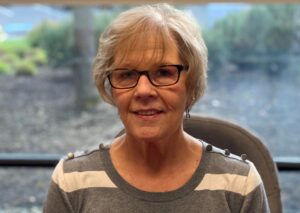 “I didn’t want to go to the [Mental Health First Aid] training, but I did. I never thought I would use any of the information or remember it, but I did shortly after the training. My friend had been struggling with depression. He called me and told me he was in a bad way and was sitting at home with a gun thinking of killing himself. I told him I was coming over.
“I didn’t want to go to the [Mental Health First Aid] training, but I did. I never thought I would use any of the information or remember it, but I did shortly after the training. My friend had been struggling with depression. He called me and told me he was in a bad way and was sitting at home with a gun thinking of killing himself. I told him I was coming over.
“When I got there and I listened to him, I could hear the Instructor’s voice in my head. Everything I learned started to come out of my mouth with no effort. I felt confident. I was able to get my friend to his therapist. I realized much later that I saved his life that day because I stayed at the training.”
As a Youth and Adult Mental Health First Aid (MHFA) Instructor, and the King County, Wash., MHFA Coordinator and program manager at Valley Cities Behavioral Healthcare, I know firsthand how empowering MHFA training can be to communities. But this story from a First Aider in King County reminds me of the impact we’re having on people’s lives and the true value of MHFA.
The King County Mental Illness Drug Dependency (MIDD) initiative and Valley Cities Behavioral Healthcare began their MHFA partnership in 2018, and over the last two years, we have hosted more than 270 classes and trained more than 4,280 community members as Mental Health First Aiders.
The goal of the King County MHFA Program is to enable community members to have conversations about mental health and substance use challenges and empower them to reach out and say, “I notice …” or “I’m concerned …” and to ask, “Are you thinking of suicide?”
2020 was a powerful year for the King County MHFA program.
Given the success of the King County MHFA program, and despite financial challenges stemming from the COVID-19 pandemic, King County will increase the program’s budget by nearly $200,000 this year. The increased funding will result in an additional 2,500 community members being trained in MHFA. This funding will also allow the program to train all King County COVID-19 Contact Tracers, so they can provide mental health education, information and referrals to the people they reach.
We are excited for the future of the King County Mental Health First Aid program and hope other communities will follow our bold initiative. There is so much more work to do, and we are ready to do it, with strategic planning and focus – in King County and across the country.
The King County Mental Illness Drug Dependency, sometimes called the Behavioral Health Tax Fund, is a county-wide sales tax generating approximately $136 million every two years. It is managed by the King County Department of Community and Human Services Behavioral Health and Recovery Division.